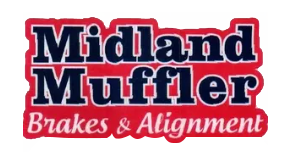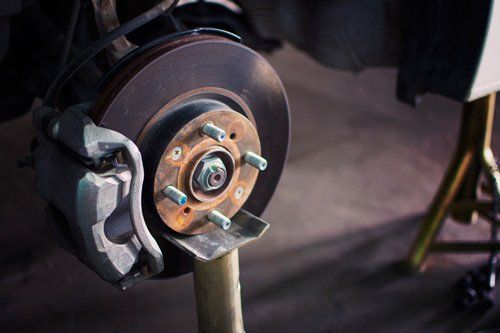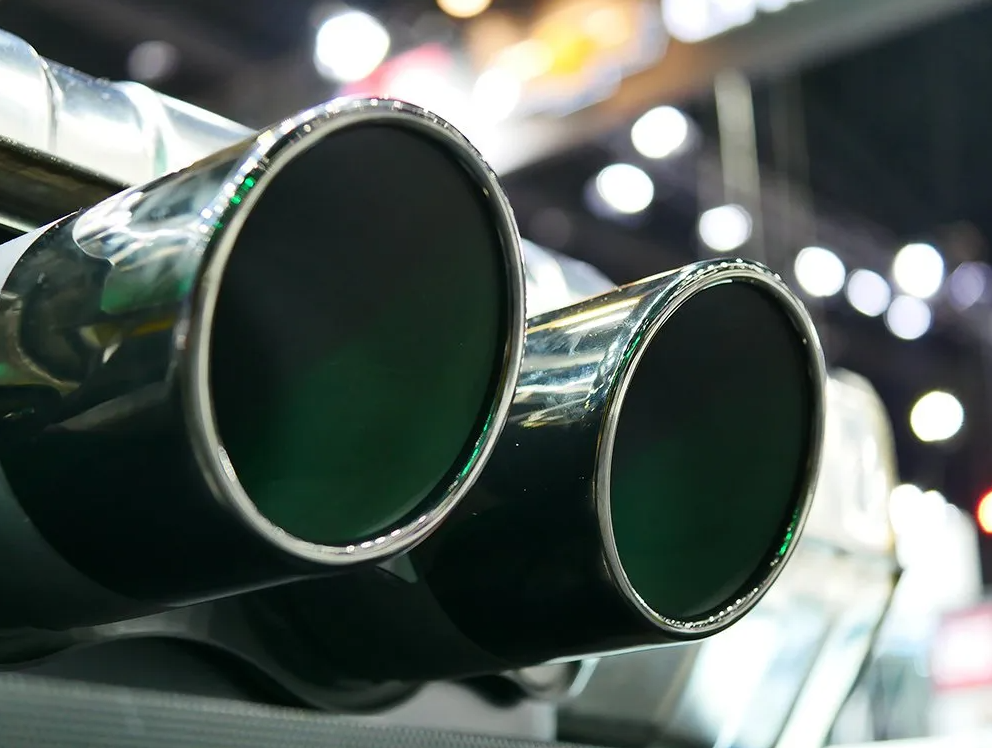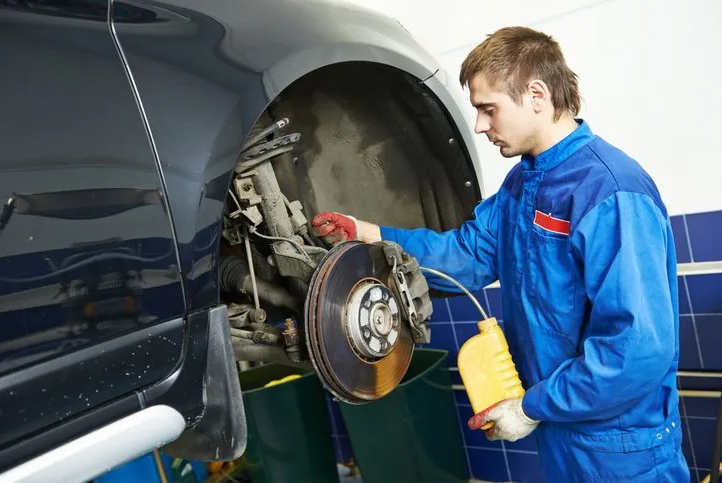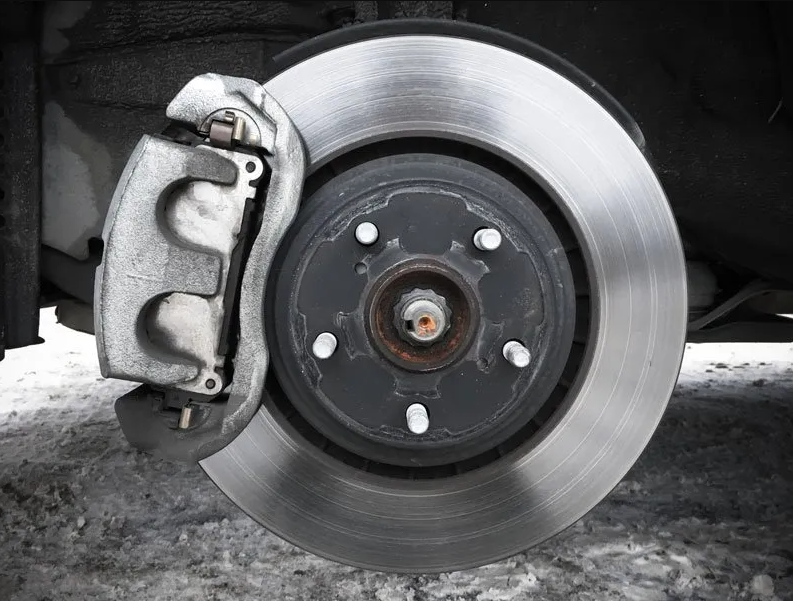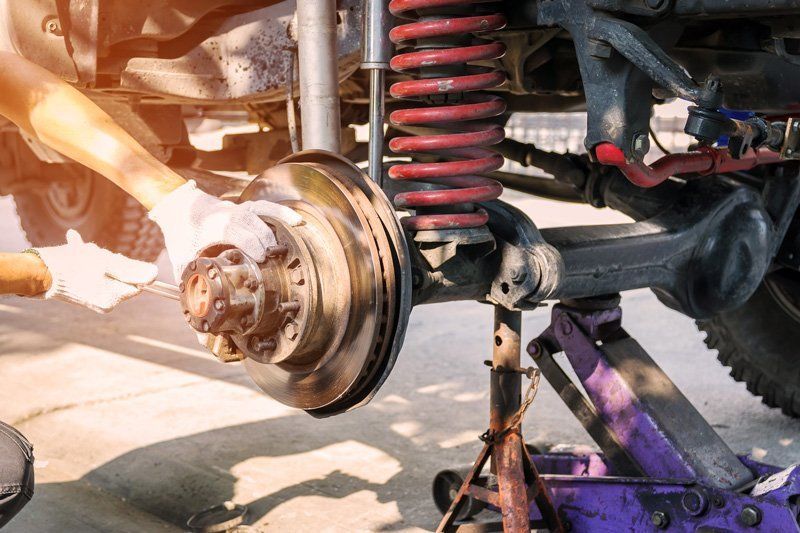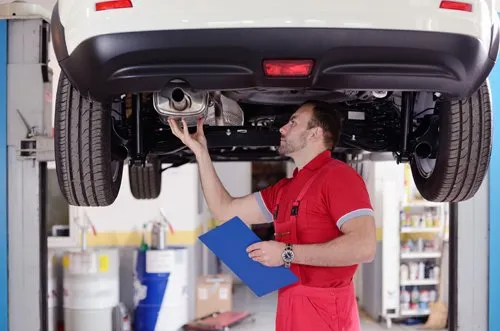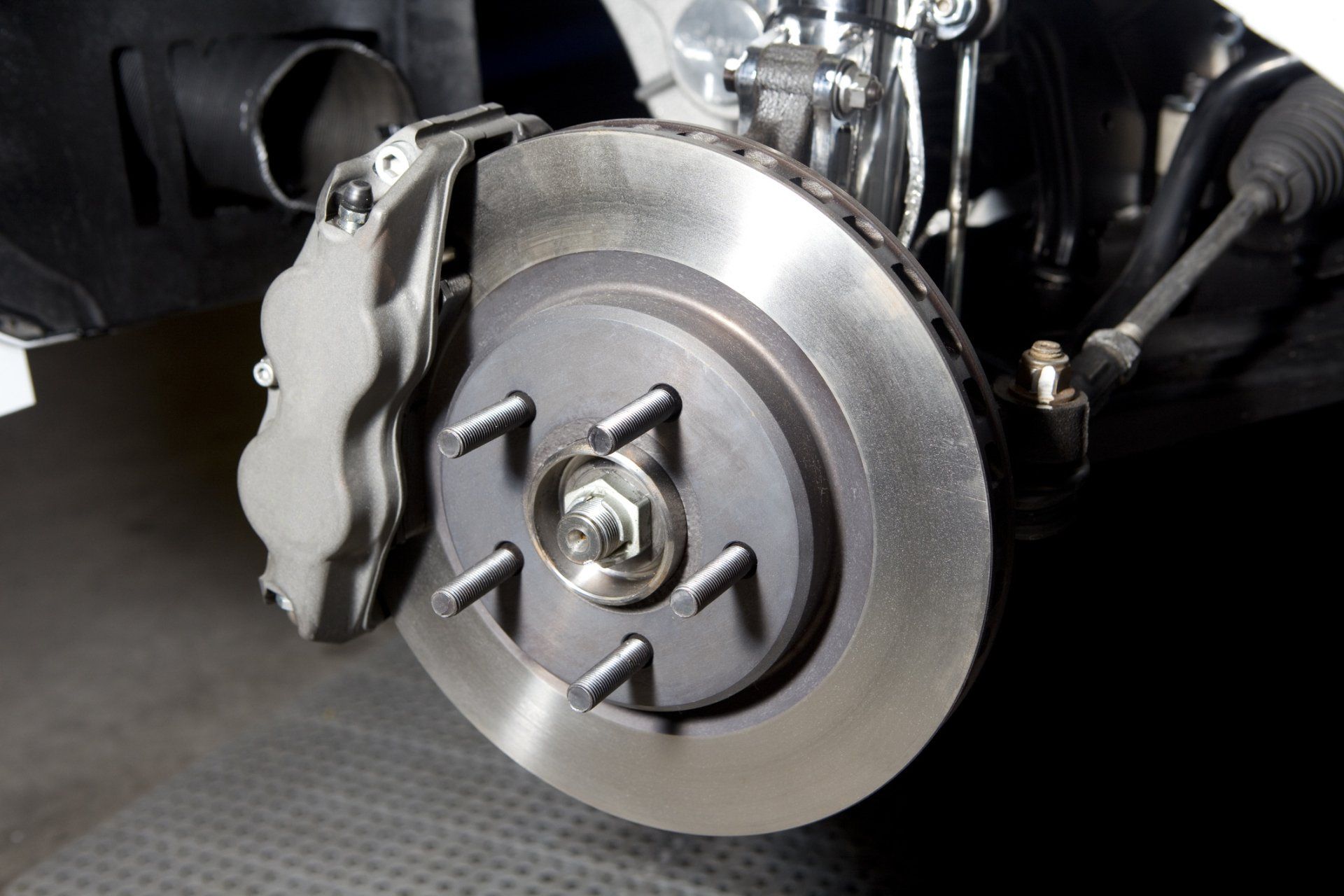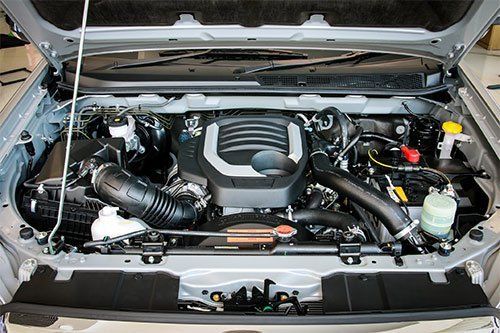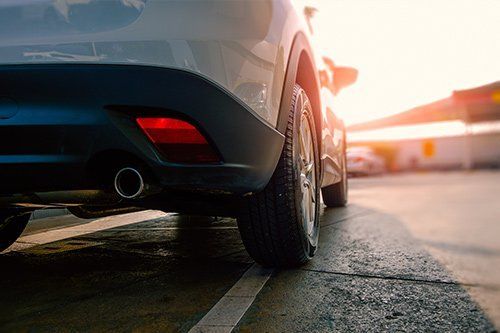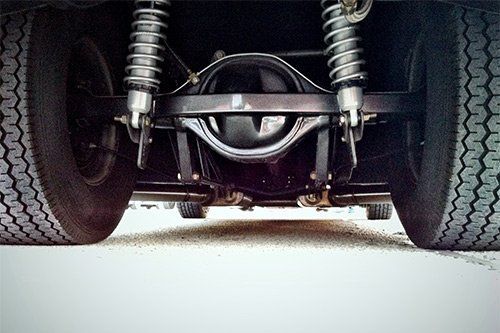3 Hydraulics-Related Sources of Brake Drag
Brake drag occurs when the calipers on one or more of your wheels fail to completely release the brake rotor when you take your foot off of the brake pedal. Brake drag may range from relatively mild to quite severe. At its worst, brake drag causes your car to feel like the brakes remain engaged at all times.
Regardless of its severity, over time brake drag will wear down your brake pads prematurely, and it often contributes to overheating and damage to related brake components. Unfortunately, brake drag may occur as the result of many different underlying issues. This article takes a look specifically at three hydraulic problems that can lead to brake drag.
1. Overheating
Virtually all passenger cars and light-duty trucks contain disc brakes powered by hydraulic systems. A hydraulic system uses the incompressible nature of fluid to transfer force from your brake pedal all the way to your brake caliper, causing it to close around the rotor and slow the momentum of your wheel.
Brake drag often occurs when the fluid in your system overheats. Under certain conditions, temperatures may even rise so far that the hydraulic fluid reaches the boiling point. At that point, the fluid expands beyond its normal volume. This expansion increases the amount of pressure exerted on your calipers, causing them to remain clenched around the rotor even when you let off the brake pedal.
If overheating fluid lies at the heart of your brake drag, you probably notice that the problem comes and goes. If you go long enough without applying your brakes, the fluid may cool down such that the caliper releases itself. That said, the longer the issue goes on, the more your brake fluid will degrade, leading to more and more performance issues.
Likewise, overheating fluid eventually leads to overheating in other parts of your brake systems. This excess heat can seriously damage things like rotors, calipers, and brake pads. Contact a mechanic as soon as possible to install fresh hydraulic fluid and investigate the root cause of the overheating.
2. Brake Hose Restrictions
When you depress your brake pedal, the push rod transfers force to the master cylinder, which converts the mechanical force into hydraulic force. Hydraulic fluid then moves through a series of brake hoses to your calipers, which close around the rotor. Releasing the brake pedal creates a vacuum that draws fluid back up into the master cylinder's reservoir.
Brake hoses rank among the most vital components in a brake system, as well as the most vulnerable to problems. One common problem involves hoses that have developed restrictions. A severe enough restriction prevents fluid from returning from the caliper to the reservoir as quickly as normal. As a result, your brakes won't release as quickly as they should.
Many brake hose restrictions stem from corrosion affecting the hose brackets and collars. Likewise, hoses can become restricted as the result of clamps and pliers. In any case, the solution to most restrictions involves replacing the affected brake hoses.
3. Excessive Fluid in Master Cylinder
Brakes operate according to properties of fluid displacement. Applying your brakes causes pistons to push fluid out of the master cylinder. Releasing your brakes causes the pistons to retract, allowing fluid to reenter the master cylinder. In order for this system to work correctly, however, the master cylinder must contain an appropriate amount of empty space.
If your master cylinder contains too much brake fluid, there may be insufficient space for the brakes to release. Brake drag may not occur when you first start driving, while your brake fluid remains relatively cool. But as fluid heats up and expands, the master cylinder will have less and less free space.
A trained mechanic knows just how much brake fluid to put in the master cylinder. For more information about how a professional can keep brake drag at bay in your car, please contact the pros at Midland Muffler and Brake.
